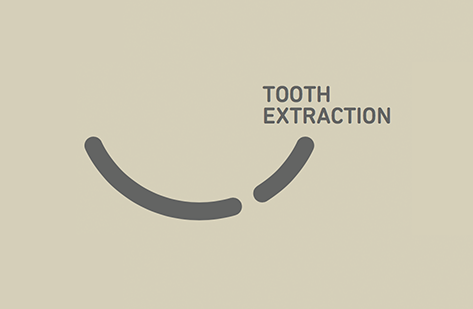Tooth Extraction
Tooth extraction is a procedure where a tooth is removed usually due to it being too damaged or infected for it to be repaired (eg. with a root filling and/or crown).

Common reasons why a tooth may need to be removed, include:
- Extensive trauma, bone loss, damage or tooth decay;
- Severe pain or infection;
- Baby teeth that fail to fall out naturally;
- Impacted teeth. eg. Wisdom teeth;
- For othodontic reasons, to create space (usually the premolars are removed); and
- Medical reasons. eg. Radiation to the head and neck, Chemotherapy.

For a routine extraction, the tooth is loosened with an instrument called an elevator. Then forceps can be used to simply remove the tooth. For more complex extractions a small incision (cut) into the gum and removal of bone may be necessary to surgically remove a badly broken or impacted tooth.
During a tooth extraction, you can expect to feel pressure only, but no pain.
Most extractions area straightforward and quick therefore can successfully be performed using simple local anaesthetic.
However, young children and anxious patients may benefit from sedation or even general anaesthetic to aid successful treatment.
Having a tooth extracted is a surgical procedure.
Therefore, some post-treatment mild discomfort is to be expected when the anaesthetic wears off. This discomfort can usually be kept under control with mild painkillers such as Ibuprofen.
- A clean and healthy mouth aids healing;
- Rest for a few hours following the treatment;
- Rinse with warm salty water during the 24 hours after the extraction;
- No smoking for 3 days;
- No food and drinking while you are still numb from the local anaesthetic;
- Bite down on a clean piece of gauze if slight bleeding occurs;
- Complete healing takes at least two weeks.
We accept all major health funds and are preferred providers for:








